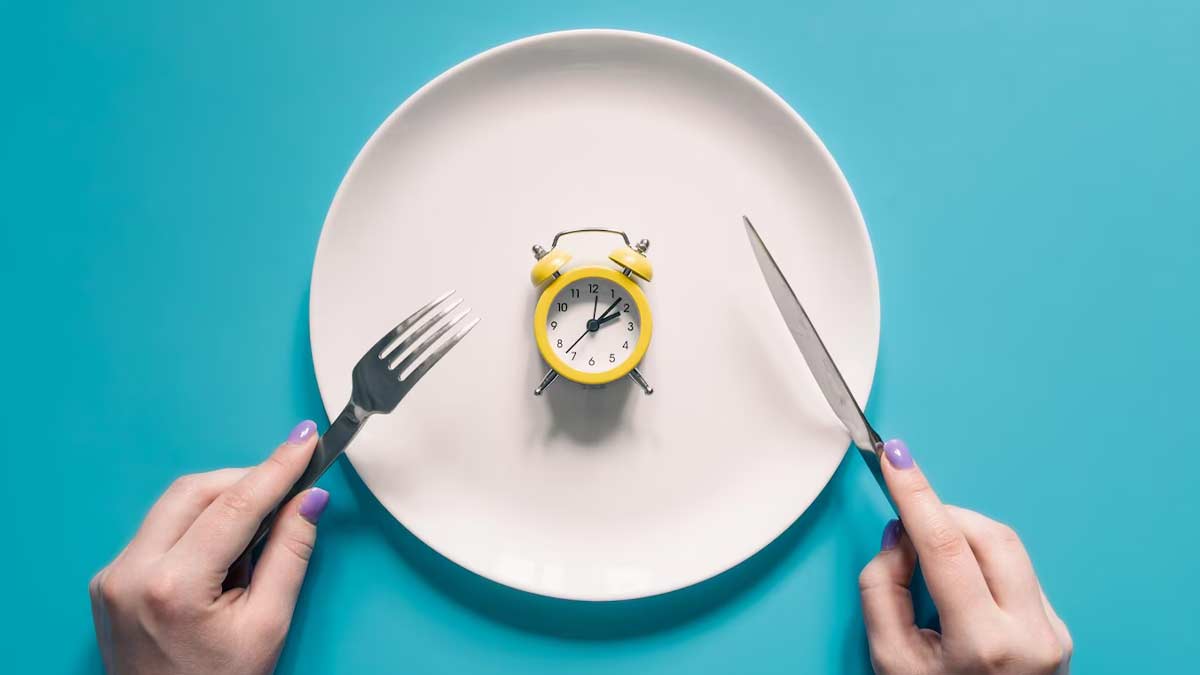
Let’s be honest. How many of us youngsters eat our meals on time? Our hectic lifestyles have made it a norm to eat meals whenever we get the time or even skip meals occasionally, especially with dietary fads like intermittent fasting trending nowadays. Instead of having properly balanced meals on time, a lot of people have replaced this habit with snacking.
Table of Content:-
To highlight why we should be punctual with our meals and not just eat whenever we feel like it, the OnlyMyHealth team spoke to Dr Rajiv Kovil, Head of Diabetology, Zandra Healthcare and Co-founder of Rang De Neela initiative.
Why You Should Have Meals On Time
Dr Kovil opinionated that people often believe that if they don’t eat, or skip meals, it will help them avoid metabolic conditions like being overweight or obese. However, “that is not true,” he said. “Food is the fuel for our body,” said Dr Kovil, “That is why it is essential to provide your body with the amount of food it needs, in the proportion that it is required, and at the right time.”

The growing trend of untimely meals is a direct consequence of people eating for pleasure and not for hunger. This trend has replaced our traditional Indian meals where we used to have sabzi, salad, dahi, dal, roti, and everything together. “The growing trend of untimely meals has led to an epidemic of sorts of obesity, diabetes, blood pressure, and similar lifestyle disorders,” said Dr Kovil.
He highlighted that families also have a habit of eating their meals together, which often results in late consumption since people wait for their family members to join them for dinner. This often leads to people having their dinner as late as 9 pm or even 10 pm at times. “This leaves less time between dinner and sleep, which causes metabolic hormones and endocrine glands to go into rest and not function properly, causing metabolic disorders like diabetes and obesity,” said Dr Kovil.
Snacking Trumps Timely Meals
Another issue is snacking which is increasingly replacing timely meals, and has become a “household problem across the world,” said Dr Kovil. He suggested that habits like midnight snacking have serious health detriments.
Also Read: Here’s Why You Should Finish Your Dinner Before 7 pm: Expert Shares Benefits Of An Early Dinner

“What has happened over the last three and a half decades is that eating has become a hedonic expression. Earlier, people had only a few options for food, so their meals fueled hunger. However, now due to the multitude of options, people have meals for pleasure. They fantasise about what they will eat for dinner, or over the weekend. It has become a pleasurable behaviour and that overrides the hunger behaviour,” he explained.
This is why in the last three to four decades, the underfed, overfed, and obese population is at an all-time high in India, said Dr Kovil.
Also, it is easier to make poha, dosa, or sandwiches for dinner, which are “high carbohydrate refined foods, which catapults your sugar, cholesterol and weight.”
Talking about what constitutes a balanced meal, Dr Kovil listed:
- 55 to 60% of carbohydrates
- 15 to 20% of healthy fats
- 25 to 30% of protein
- Additional micronutrients
Also Read: How Midnight Snacking and Fast Food Overconsumption Can Affect a Teenager
So whether it is pizza, dosa, idli, ragda patties, or sandwiches, replacing your regular meals with these snacking items is not healthy. Dr Kovil concluded that there should be ample time between dinner and bedtime, so people should have early dinner which should not have high levels of carbohydrates. This will improve your metabolism and your overall health.
Also watch this video
How we keep this article up to date:
We work with experts and keep a close eye on the latest in health and wellness. Whenever there is a new research or helpful information, we update our articles with accurate and useful advice.
Current Version